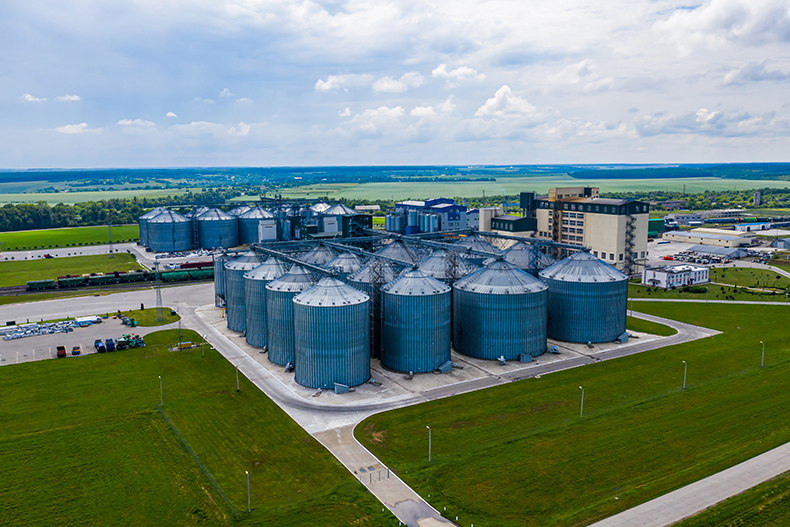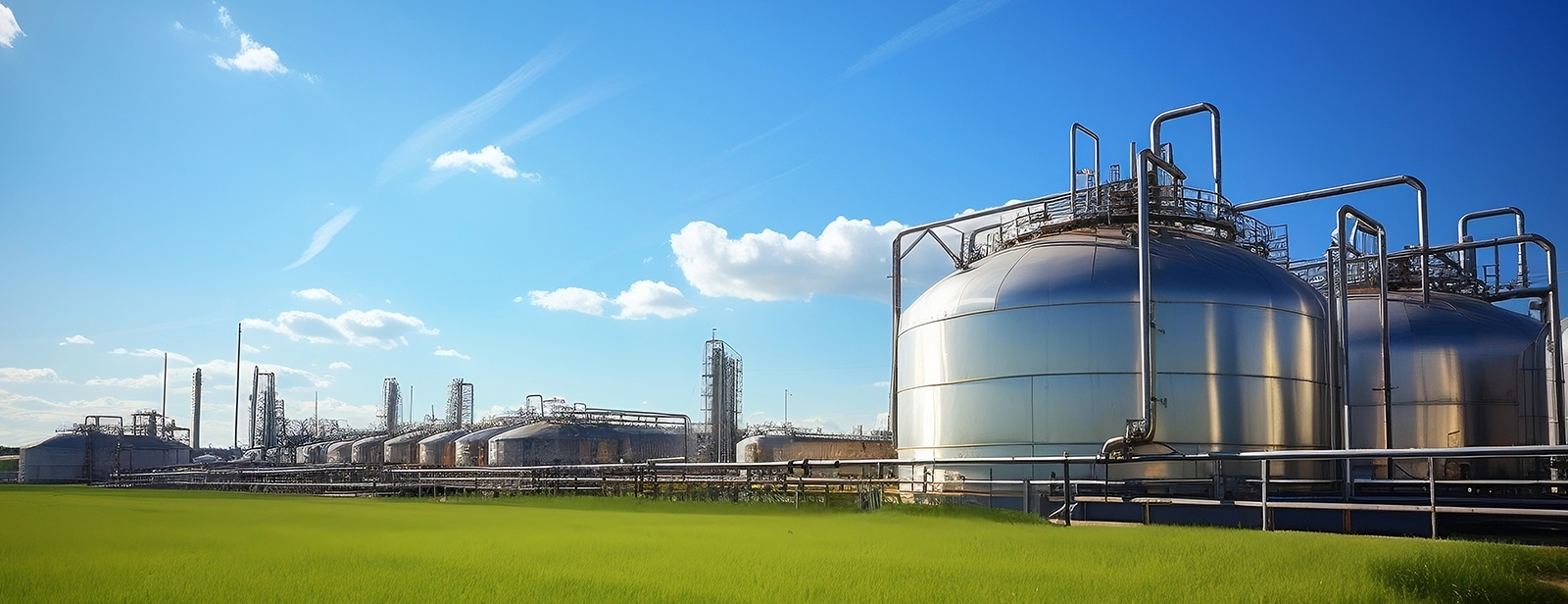CBG Plant Overview
Compressed bio-gas (CBG) is a renewable energy source derived from the anaerobic digestion of organic waste materials such as agricultural residues, food waste, and animal manure. Through a controlled fermentation process, methane gas is produced, purified, and compressed for various applications.

Uses of CBG:
- Transportation Fuel: CBG can be used as a clean-burning fuel for vehicles, including cars, buses, trucks, and two-wheelers. It offers an eco-friendly alternative to conventional fossil fuels, reducing greenhouse gas emissions and air pollution.
- Cooking Fuel: In households, restaurants, and commercial kitchens, CBG serves as a reliable cooking fuel, providing efficient heat for cooking and food preparation. Its clean combustion minimizes indoor air pollution and promotes safer cooking environments.
- Heating Fuel: CBG is utilized for space heating and water heating in residential and commercial buildings. Its high energy content and low emissions make it an ideal choice for heating systems, ensuring comfortable and sustainable living spaces.
- Electricity Generation: CBG can be used as a fuel for electricity generation in power plants and decentralized energy systems. It contributes to the diversification of energy sources and supports the transition to renewable energy solutions.
- Industrial Applications: In various industrial processes, CBG serves as a versatile energy source for steam generation, drying operations, and process heating. Its clean combustion characteristics make it suitable for diverse industrial applications, promoting sustainable manufacturing practices.
FOM Overview
Organic Fertilizers (FOM) are nutrient-rich materials derived from organic sources such as compost, manure, and bio-waste. They play a crucial role in improving soil health, enhancing crop productivity, and promoting sustainable agriculture practices.
Uses Of FOM:
- Soil Conditioning: FOM improves soil structure and fertility by enhancing soil organic matter content and promoting microbial activity. It helps in soil aggregation, water retention, and nutrient availability, supporting healthy plant growth.
- Nutrient Supplementation: FOM provides essential nutrients such as nitrogen, phosphorus, and potassium to crops, fulfilling their nutritional requirements throughout the growth cycle. It reduces the dependence on synthetic fertilizers and minimizes nutrient runoff, contributing to environmental sustainability.
- Microbial Activity: FOM stimulates microbial activity in the soil, fostering beneficial interactions between soil microorganisms and plant roots. This symbiotic relationship enhances nutrient cycling, disease suppression, and overall soil ecosystem health.
- Root Growth Promotion: FOM stimulates root development and proliferation in plants, improving nutrient uptake efficiency and drought resistance. It facilitates deeper root penetration, enhancing plant stability and resilience to environmental stressors.
- Sustainable Agriculture: By promoting the use of organic fertilizers, farmers adopt sustainable agricultural practices that prioritize soil health, biodiversity conservation, and long-term productivity. FOM supports agroecological principles and contributes to resilient farming systems.
